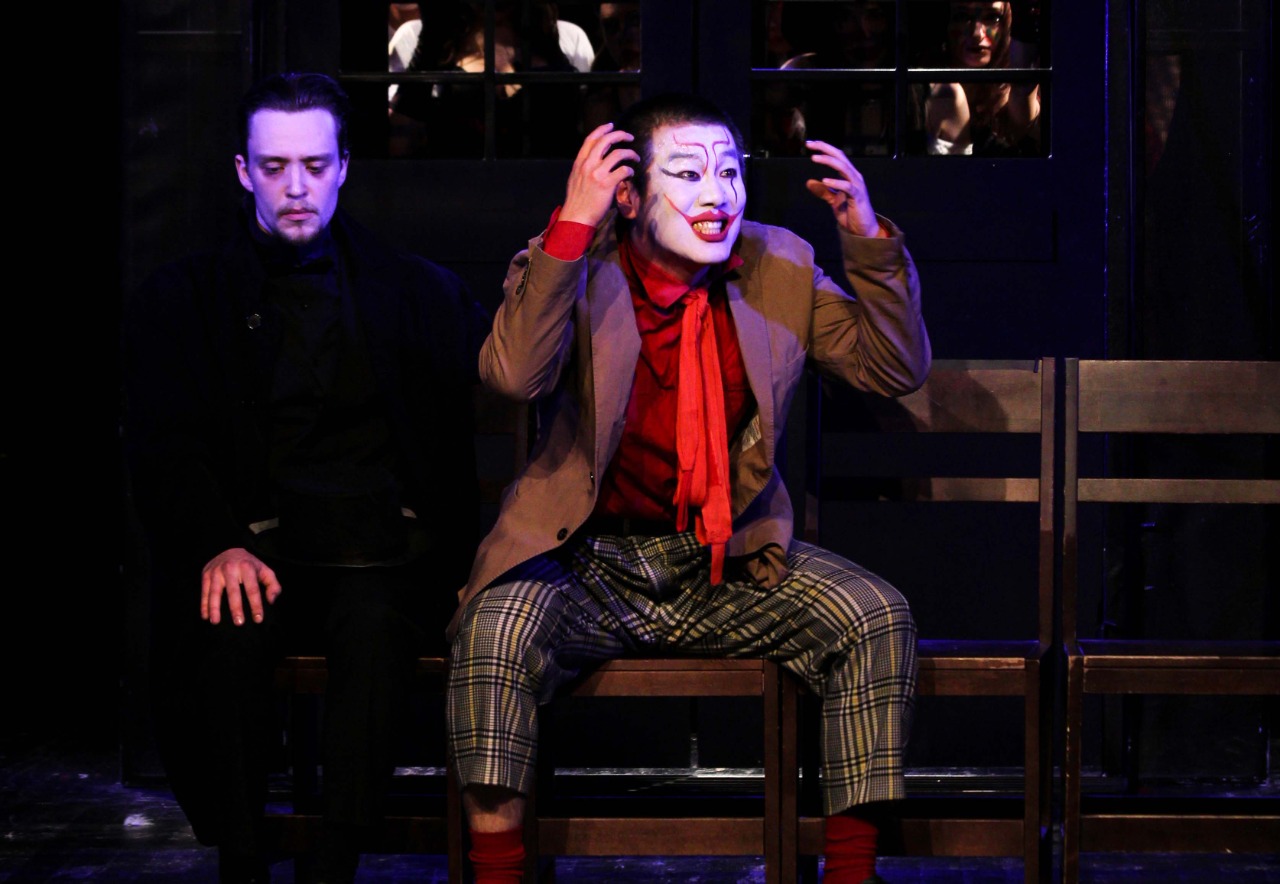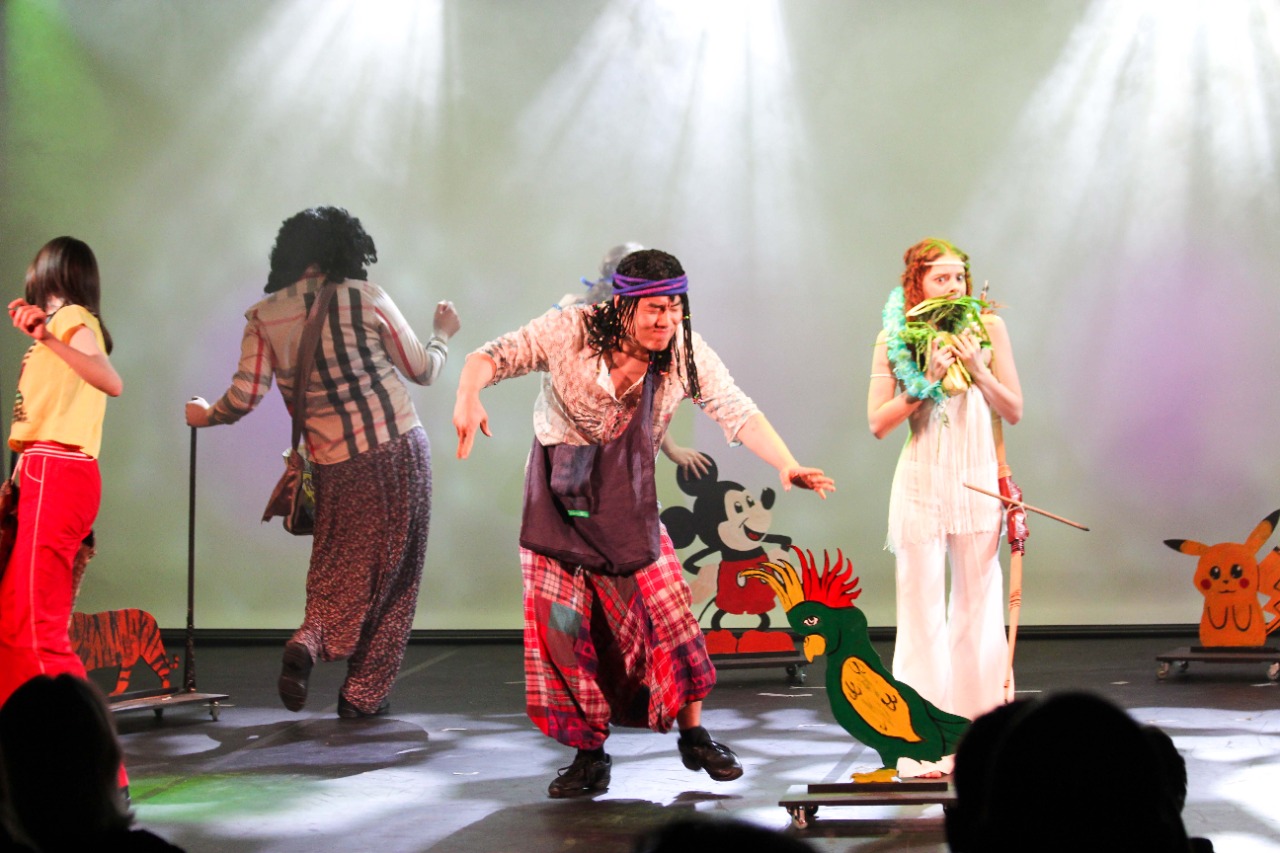In 2018, Lee Hyukjung came from South Korea to study at GITIS. Lee Hyukjung went through all challenging admission competitions and started studying at the department led by Sergei Yashin. Lee Hyukjung has already graduated from GITIS and is now ready to share his experience with us:
— Why have you decided to study at GITIS?
— I am 30 years old. When I lived in Korea, I often watched Anton Chekhov’s plays: “The Cherry Orchard”, “The Seagull”, “Three Sisters”, “Uncle Vanya” and others. To be honest, I didn’t fully understand these plays. I didn’t really get why Lopakhin shouted that he bought the Cherry Orchard, why Ranevskaya did not use Lopakhin’s advice.
I also wanted to know more about Russia. I wanted to understand what Stanislavsky’s system is and why there are so many famous Russian authors. I was just curious to know more. When I came to Russia, I first enrolled at the Shchepkin School (in the Korean course). We had an interpreter, who helped us and we played on stage in Korean. However, we almost never communicated with Russian students. I know that the education there is also excellent, but I just didn’t feel comfortable there. Then a friend of mine recommended me GITIS. His name is Kwon Jungtak, he did his post-graduate studies at GITIS, and now he works as a teacher in Korea. When he was speaking about GITIS, I saw pride in his eyes. That’s when I started dreaming of studying at GITIS.
— How did you get admitted to GITIS? Are there any tips you would like to share?
Before applying, I took preparatory courses at GITIS. Together with my Russian teacher, we prepared for admission process and various competitions. For one of the competitions, I learned a part from Bulgakov’s novel “The Master and Margarita”. To be honest, non-CIS foreigners can’t read Russian fluently, so we have to show the professors our dedication and desire to learn. I would say that the main task of the applicant is to understand how to show these traits to admission committee. When I was applying, I didn’t speak Russian very well and I was lucky enough to find help from Natalia, who is working at the International Department of GITIS. We keep staying in touch, and whenever I face problems or difficult situations in Russia, she is always there for me. I am grateful for all her help.
— Did you notice any difference between the Korean and Russian educational systems?
— I didn’t study at a theater academy in Korea, so I can’t really compare in this regard. However, when I told a friend who studied at a theater academy in Korea that GITIS had an accompanist and that we rehearse with live music, he was positively surprised and maybe even jealous.
— What surprised you the most during your studies at GITIS?
— Creativity is often born in conflict, so no one was afraid to speak their mind in GITIS. However, I can’t say that this always felt right for me. Sometimes during a conflict one can lose respect for another.
— What would you say was the highlight of your studies in GITIS?
— I would say that the most impressive aspect was the way we worked with our master (main professor of the course). Once during a break I asked him: “I’m going to the store now. What would you like to have for lunch?” He replied, “Thank you, but I don’t eat lunch when I rehearse. It’s always makes me sleepy.” The professor is 74 years old, and I know how important nutrition for a person of his age is. In my opinion, all GITIS professors show incredible dedication to their students and their work. They are a living example for the next generation of artists. We should be proud of our professors.
— Have you faced difficulties because of cultural differences or language barrier?
— It was always difficult. Even this interview is challenging for me, so I am using a dictionary. But I was never afraid of these challenges, because I always had professors and my favorite “Yashintsy” by my side.
— Did students in your class help you during your studies?
— All my classmates helped me from the very beginning. Honestly, when I started studying at GITIS, I couldn’t understand anything, but my classmates were always there for me. I will always remember that moment when Giya (Georgy Dievsky) asked me to show part of the play together.
— Did you use both Korean and Russian cultures while working on the plays and performances?
— I tried to speak Russian like Russian people, but my friends told me that I have an interesting accent. I can’t speak Russian as a Russian person, so I decided to just focus on the character: his live, emotions and traits. I didn’t want to hear from the audience: “He’s not Russian, that’s why he plays like that, we have to understand it”. I wanted to be perceived as a Russian actor, not as a foreigner.
— What are your plans for the future? Are you going to stay in Moscow, or will you return back to South Korea?
— I got a job here, so now I’m trying to get a new visa. If it goes well, I want to become an actor who successfully works in both Russia and Korea.
— What would you recommend to foreign students who are coming to study at GITIS?
— To choose how to exist and be perceived on stage: as a foreigner or as a Russian actor.




